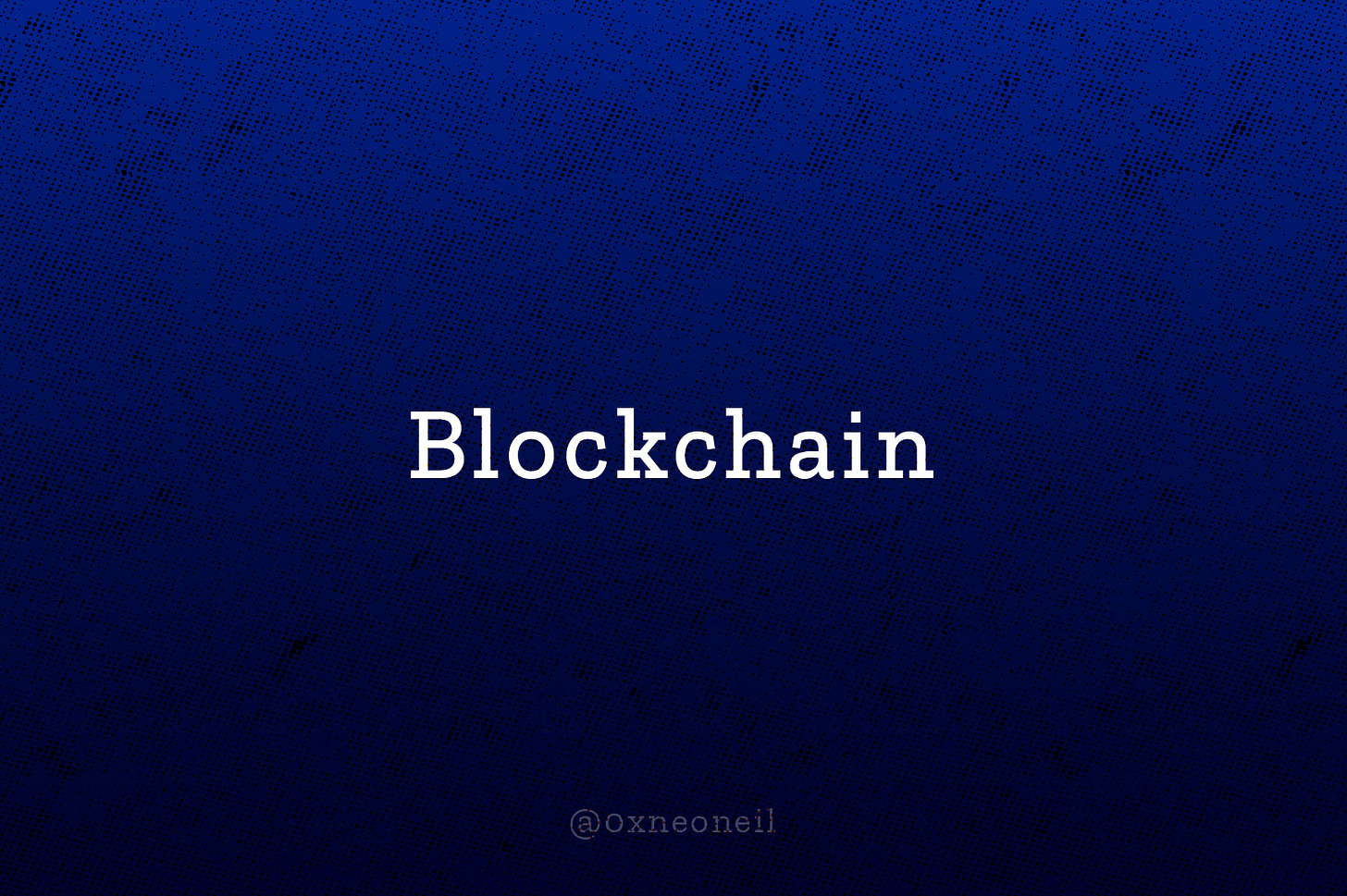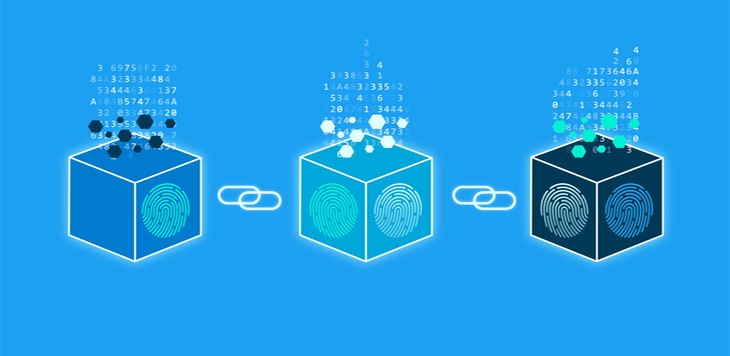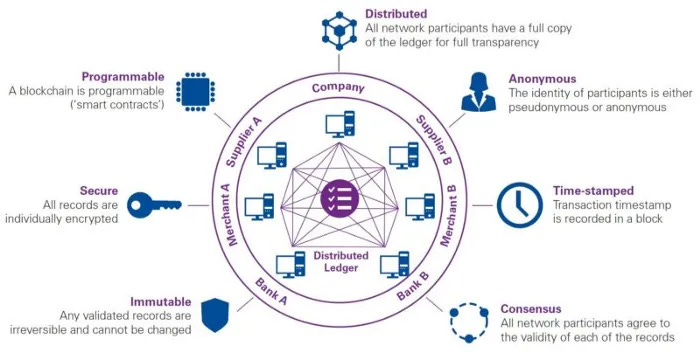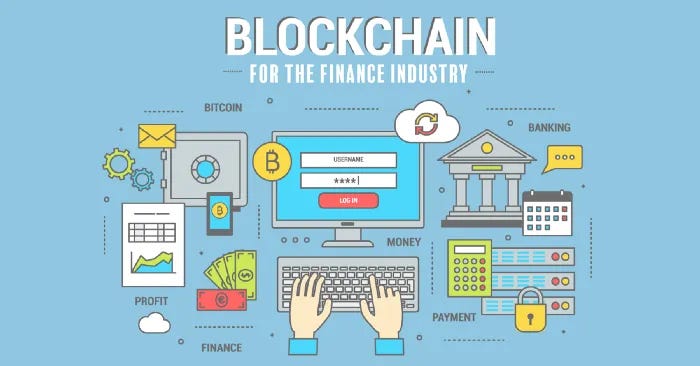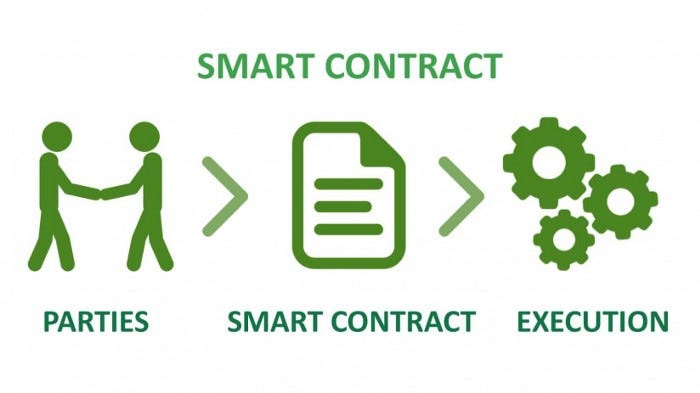We can apply blockchain & use cases in real life?
A blockchain is a digital ledger of transactions that tracks assets in a business network.
Hello everyone,
Blockchain term has always become one of the most popular topics in the tech world. The applications of blockchain technology are updated constantly, and it seems like a new use case for blockchain is discovered everyday.
So how come you know about blockchain? or when and where did you know blockchain? I think that almost we did know about blockchain through Cryptocurrency including me.
Cryptocurrency is an application of Blockchain, it’s about the finance sector. So how about other sectors? like Health, Gaming, Insurance,…etc. How can Blockchain apply to it?
I'm Neo — Admin — Community Manager of Optimus Finance and Growth Marketing of LECLE Vietnam. Come together and let’s get started to explore some of blockchain technology’s applications in the real world. 😉
1. Blockchain Technology
1.1. Definition
The “blockchain” term has been used in a variety of different ways, and it can become to be confused to try to understand what it really means.
In a simple way, a blockchain is a digital ledger of transactions that tracks assets in a business network.
This ledger is distributed across a network of computers so that every computer on the network has a copy of the entire blockchain. This will allow for transparent and secure record-keeping because everyone can see every transaction that is made.
Blockchains are also described as being “decentralized”, which means there is no management of the centralized organization like the central authorities. The network is managed by all of us who join it. This decentralization makes blockchains very secure and fair because there is no single point of failure that could be exploited.
Bitcoin (BTC) — the first cryptocurrency was created in 2009 and used a blockchain to record all of the transactions made. Since then, there have been many cryptocurrencies created and all of them use their own blockchains like Ethereum, NEAR, Binance,…etc.
1.2. The blockchain application
Blockchain technology is a distributed database that allows for a secure, transparent and tamper-proof way of recording transactions.
This makes it an ideal technology for software development, it can be used to create a lot of applications, from financial transactions to medical records and land registries.
The potential of blockchain technology is big, but its applications are only limited by our imagination. In the future, I believe that we can see blockchain being used in everything in our life
In the near future, blockchain technology may redefine the Internet as we know it today and more applications will be developed to take advantage of its unique properties like Web 3.0.
At the moment, the most popular application for blockchain is not only in cryptocurrencies, but there are also many other potential applications for blockchain technology, that will be explored soon.
So, why does blockchain need applications?
If without applications, technology will be nothing and no utility in the real world. Applications give blockchain more power and usefulness. They are the key to unlocking the door for this potential technology.
Applications will allow blockchain to be used for things like payments, smart contracts, and other transactions. This is the reason why blockchain is being adopted by so many industries. Without them, blockchain would have no practical purpose.
2. Blockchain applications in the real world
2.1. Supply Chain — Logistic
The usage of blockchain technology in supply chains will be more and more popular. Blockchain can help to manage supply chain processes, improve transparency security; leaner, faster and more automated; reduce the costs and be traceable the origin through a digital ledger.
By providing a shared, tamper-proof record of all transactions, blockchain can help to reduce or errors, delays and frauds.
Although there are benefits of using blockchain technology in supply chains, there are also some challenges and difficulties that we need to address before massive adoption:
Scalability: The current generation of blockchain platforms is not able to handle a large number of transactions for global supply chains.
Interoperability: The lack of interoperability between different blockchain platforms will be a challenge to the massive adoption of blockchain technology in supply chains.
Regulatory compliance: Supply chains are highly regulated industries, and any new technology needs to comply with all relevant regulations.
Regardless of these challenges, blockchain technology is still potential for revolutionizing supply chain management and it is only a matter of time before we see massive adoption.
Different blockchain platforms are being applied to solve this problem. They include IBM’s Batavia, R3’s Marco Polo, Digital Trade Chain operated by various banks, and the Hong Kong Trade Finance Platform.
2.2. Healthcare
Blockchain is being applied in the tracking and tracing of prescription drugs. This has been proved in the Drug Supply Chain Security Act Interoperability Pilot program in the US. Using this program, we can ensure that these products are not counterfeit or stolen. It can also help to identify any potential issues with the supply chain, such as delays or shortages.
Securing customer data is a top priority in healthcare as is the sharing and distribution of this data that helps to facilitate the better equipment of healthcare services across hospitals, governments, and research institutions. Good examples of startups using blockchain to secure data sharing in this area include Amchart, ARNA Panacea, BlockRx,…etc.
2.3. Government
Blockchain is being used by governments for digital identity management. A good example is Estonia, which is using blockchain-based for digital identity to digitize national identity records, secure citizen data to reduce identity fraud and reduce inefficiencies of legacy digital ID management platforms such as high costs.
2.4. Insurance
The insurance industry has been exploring the usage of blockchain technology to reduce costs and improve security. Some potential applications of blockchain in insurance include claims processing, fraud detection, policy management and smart contracts.
Even though the full potential of blockchain in insurance hasn’t been realized yet, the technology holds great promise for transforming the industry. Insurance companies can leverage the power of blockchain will be well-positioned to compete in the future marketplace.
2.5. Copyright Protection
There are many startups using blockchain to allow their customers to secure IP rights. Once artwork is registered on the platform, customers can protect their work from being used illegally without their permission. The owners can also pursue legal injunctions in case of violations using the certificate provided on the platforms.
Bernstein Technologies GmbH and other companies also use blockchain to support companies through the innovation lifecycle. Companies can register inventions, designs, and proof of use on the platform. This will create a trail of records on Bitcoin blockchain. This way, companies can secure their trade secrets and other notarized information using blockchain.
2.6. Finance (Banks and payments systems)
When it comes to blockchain in banking, there are a few key applications that have been identified so far. These include cross-border payments, KYC/AML compliance, loan origination and trade finance.
The current system for cross-border payments, KYC/AML compliance, loan origination Trade finance are slow, cumbersome, manual and time-consuming and expensive. With blockchain, the process can be arranged, automated shortly and made much more efficient.
In conclusion, blockchain has the potential to bring a lot of benefits to banks and the banking system. It can streamline processes, make them more efficient and reduce costs. It remains to be seen how quickly and how widely blockchain will be adopted by banks.
2.7. Charity
The usage of blockchain technology can help to increase transparency and accountability in the charity. By providing a secure and transparent platform for donations and expenditures, blockchain can help to ensure that funds are used for their intended purpose and that donors can track where their money is going.
Additionally, blockchain-based smart contracts could be used to automatically disburse funds to beneficiaries based on predetermined criteria, further increasing efficiency and reducing fraudulent activity.
While there are many potential benefits of using blockchain technology in the charitable sector, there are also some challenges that need to be addressed.
2.8. Gaming
Blockchain-based games can take a number of advantages over traditional games, including transparency, immutability, and decentralization. These features can help to create a more fair and secure gaming environment for all players.
Additionally, blockchain technology can create new types of game experiences that are not possible with traditional games.
For instance, blockchain-based games can allow us to own our in-game items and assets, trade them freely on decentralized exchanges — Defi, and even earn real-world value from them. It’s called Gamefi, the connection between Game and finance.
With all of these potential benefits, it is no wonder why we are starting to explore the possibilities of blockchain technology to apply to Gaming.
2.9. Music
Music blockchain applications will revolutionize the rights and royalties process, ensuring that writers, artists, publishers, and everyone associated with the industry are rewarded appropriately.
Adding music blockchain applications across the music industry would streamline the management of royalties and rights with a unique version of the artist’s work, regardless of location and ownership rights — ensuring musicians are paid the correct amount more quickly.
Finally, this will prevent delayed payments and legal costs. But for this to happen, the music sector must come together to determine a common practice and place trust in each other and blockchain technology.
2.10. Smart contracts
Smart contracts are like regular contracts, except the contract rules are enforced in real-time on a blockchain without ambiguity, eliminating the middleman and adding accountability for all parties involved in a way not possible with traditional agreements.
This saves businesses time and money while ensuring compliance from everyone involved.
Blockchain-based contracts will become more and more popular as sectors like Government, Healthcare,…etc discovered the benefits.
3. Closing thoughts
While the potential applications of blockchain technology are big, it is important to remember that the technology is still in its early stages of development. It will take time for the full potential of blockchain technology to be realized.
Nonetheless, the possibilities are exciting, and the potential impact of blockchain technology on the world is huge, chosen by many countries around the world as an e-Government solution, namely Estonia, Switzerland, China, Japan, America, UK,…etc.
This post is for educational purposes only. All materials I used were the different reference sources. Hope you like and follow us and feel free to reach out to us if there is an exchange of information. Cheers! 🍻
#blockchain #crypto #application


